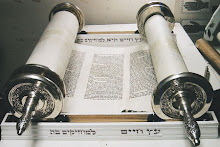A Bible Study by Jack Kelley You can find Jack's site at: http://gracethrufaith.com/
The Bible doesn’t speak of great human achievement coming from the line of Seth as it does from Cain’s line. But if you do some home work in the genealogy of Genesis 5 you discover a profound achievement from God’s perspective that demonstrates the faithfulness of Seth’s descendants. On our way to this discovery let’s also look at an interesting time line I’ve developed to demonstrate the ease with which pre-flood knowledge and experience could have been made available to those who came after. We’ll assume Adam was born in Year One and use Biblical life spans.
| Name | Born | Died | Name Means |
| Adam | 1 | 930 | Man |
| Seth | 130 | 1042 | Appointed |
| Enosh | 235 | 1140 | Mortal (Lived 905 years. Only 821 when Noah was born) |
| Kenan | 325 | 1235 | Sorrow |
| Mahalel | 395 | 1290 | The Blessed God |
| Jared | 460 | 1422 | Shall come down |
| Enoch | 622 | 987 | Teaching (By tradition Adam, Seth and Enoch named the stars, putting the gospel story in the 12 constellations of the Mazzaroth … later perverted in the signs of the Zodiac) |
| Methusaleh | 687 | 1656 | His death shall bring (The flood came the year He died) |
| Lamech | 874 | 1651 | Despairing (56 years old when Adam died) |
| Noah | 1056 | 2006 | Rest (Still around when Abraham was born) |
These 10 names contain the Gospel message.
“Man is appointed mortal sorrow. But the blessed God shall come down teaching that His death shall bring the despairing rest.”
I have not found any equivalent message hidden in the names of Cain’s descendants. They focused on the things of this world while Seth’s line was concerned with the things of God even to the extent of naming their sons.
Let’s continue.
| Name | Born | Died | |
| Shem | 1557 | 2157 | (out lived 8 of the next 9 generations including Abraham) |
| Arphaxad | 1657 | 2095 | |
| Shelah | 1692 | 2125 | |
| Eber | 1722 | 2186 | (Some see the origin of “Hebrew” in this name) |
| Peleg | 1756 | 1995 | (Earth was divided into continents during his life) |
| Reu | 1786 | 2018 | |
| Serug | 1818 | 2048 | |
| Nahor | 1848 | 1996 | |
| Terah | 1877 | 2082 | |
| Abraham | 1947 | 2122 | (First man to be called a Hebrew. 59 years old when Noah died) |
If Adam related his eye witness account to his grandson Enosh, and Enosh repeated it to Noah, Noah could have taught it to Abraham. Could God have arranged this? Shem was also alive during all of Abraham’s life. Some believe Shem appeared in Genesis 14:18 as Melchizedek. At issue is whether Melchizedek (King of Righteousness) is a name or a title. Some also suggest Shem as the architect of the Great Pyramid in Egypt.
Tags: Old Testament
Related Posts:
- Joseph, Mary, Adam And Noah
- Wisdom of the Ages: Part 1
- Cain and Seth
- The Water Vapor Canopy
- Comparing The Lines Of Seth And Cain












